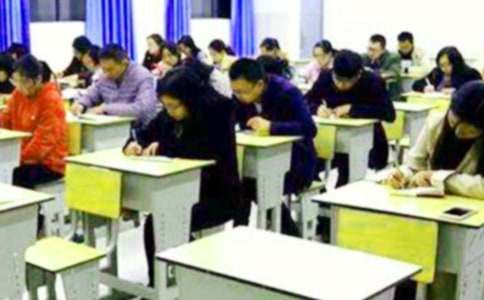- 相关推荐
初三英语月考试题
英语月考是查看学生一定时期内的学习情况,下面随小编一起看看初三英语月考试题吧。更多相关信息请关注相关栏目!

I. 单项填空(每小题1分,共15
( )26.----Where is Beth ? ----She to her hometown .
A. has gone B. has been C. went D. have gone
( )27. –Could you tell me Fairmont ? ---The day after tomorrow . I think.
A. when will you visit B. when you will visit C. when would you visit D. when you would visit
( )28.—He to school by bike but now he to school on foot .
A. used to going ; get used to go B. used to go ; gets used to going
C. used to go ; gets used to go D. gets used to going ; gets used to go
( )29. –Zhou Jielun is so cool . I’m his fan. ---
A. So do I B. So I do C. So am I D. So I am
( )30.Whith the help of the government, many poor Children can get chances to school.
A. go B. to go C. goes D. going
( )31.Japan is a country while china is a country.
A. developing ; developed B. developing ; developing C. developed; developing D. developed ; developed
( )32.In china about of people live in the country.
A. three fifth B. third fifth C. third fifths D. three fifths
( )33. Maria has never been to Shanghai. ?
A. isn’t she B. hasn’t she C. has she D. is she
( )34.---Why do you come here? ---We are here to the public services.
A. provide ; to B. provide ; with C. provide ; for D. provide ; in
( )35.HuMing for about two yeas.
A. has joined the army B. has been a soldier C. was a soldier D. joined the aumy
( )36. I have the Great wall twice . It is an place.
A. been to ; excited B. gone to ; exciting C. been to ; exciting D. gone to ; excited
( )37.My English is very poor. I can’t learn it well you help me .
A. if B. unless C. while D. when
( )38.Lily told John for class again next time ,
A. not late B. don’t he late C. didn’t late D. not to be late
( )39. ----What did Ann ask you just now , Tom? --- She asked for the bike.
A. did I pay how much B. I paid how much C. how much did I pay D. how much I paid
( )40.----Do you think the rain will stop tomorrow? ---- It has rained for ten days . It’s too wet every where.
A.I hope not B. I’m sure it is C. I’m afraid to will D. I hope so .
II、完形填空(每小题1分,共15分)
阅读短文,掌握其大意。然后从各小题所给的A、B、C、D四个选项中选出可以填入相应空白处的最佳答案,并将其标号填入题前的括号内。
Pan Weihong, 14, from Taizhou, Zhejiang, was watching news on her computer when her mother came in. Her mother immediately asked her to turn off the computer, but Pan 41 .
“I was taking a rest. I wasn’t going to use it for 42 ,” said Pan. “But she didn’t listen. I couldn’t understand her!”
Many teenagers often feel the 43 as Pan. Growing up, they might feel as if their parents want to 44 them.
The main reason behind this all is that teenagers are becoming more independent (独立的) and want to make their own decisions, 45 parents have their worries too.
Pan’s mother thought Pan was “too young to use the computer 46 ”.
Besides, 47 children and parents have stresses in their own lives. Children have to study hard. Their parents need to 48 the whole family. Without a proper way to ease (减轻) the stress, it’s 49 to bring it home with you.
To solve the problem, children 50 walk in their parents’ shoes, said Xia Ziting, 15, from Nanjing, Jiangsu.
“ 51 our parents do is the life experience that we don’t have now. More often than not, they are right,” she said. “They may just use the wrong way of telling us.”
Wang Jiannan, 15, from Taiyuan, Shanxi, 52 that teenagers find the right time and right way to talk to their parents.
“Don’t argue with them when they’re very angry. It’s taken me many painful (痛苦的)
53 _ to learn that,” he laughed. Wang 54 talking to parents in an easy tone when doing housework together, during a walk, or, as he usually does, at dinnertime.
“After all, no one wants to argue on a (an) 55 stomach !” he said.
41. A. agreed B. refused C. received D. forgot
42. A. short B. ever C. long D. years
43. A. same B. different C. serious D. unfair
44. A. understand B. love C. support D. control
45. A. but B. and C. or D. so
46. A. incorrectly B. properly C. happily D. excitedly
47. A. neither B. either C. both D. all
48. A. lose B. encourage C. support D. reply
49. A. difficult B. good C. exciting D. easy
50. A. could B. should C. would D. might
51. A. What B. Which C. That D. Whether
52. A. taught B. warned C. advised D. used
53. A. subjects B. lessons C. suggestions D. diseases
54 A. said B. continued C. imagined D. suggested
55. A. empty B. full C. big D. angry
